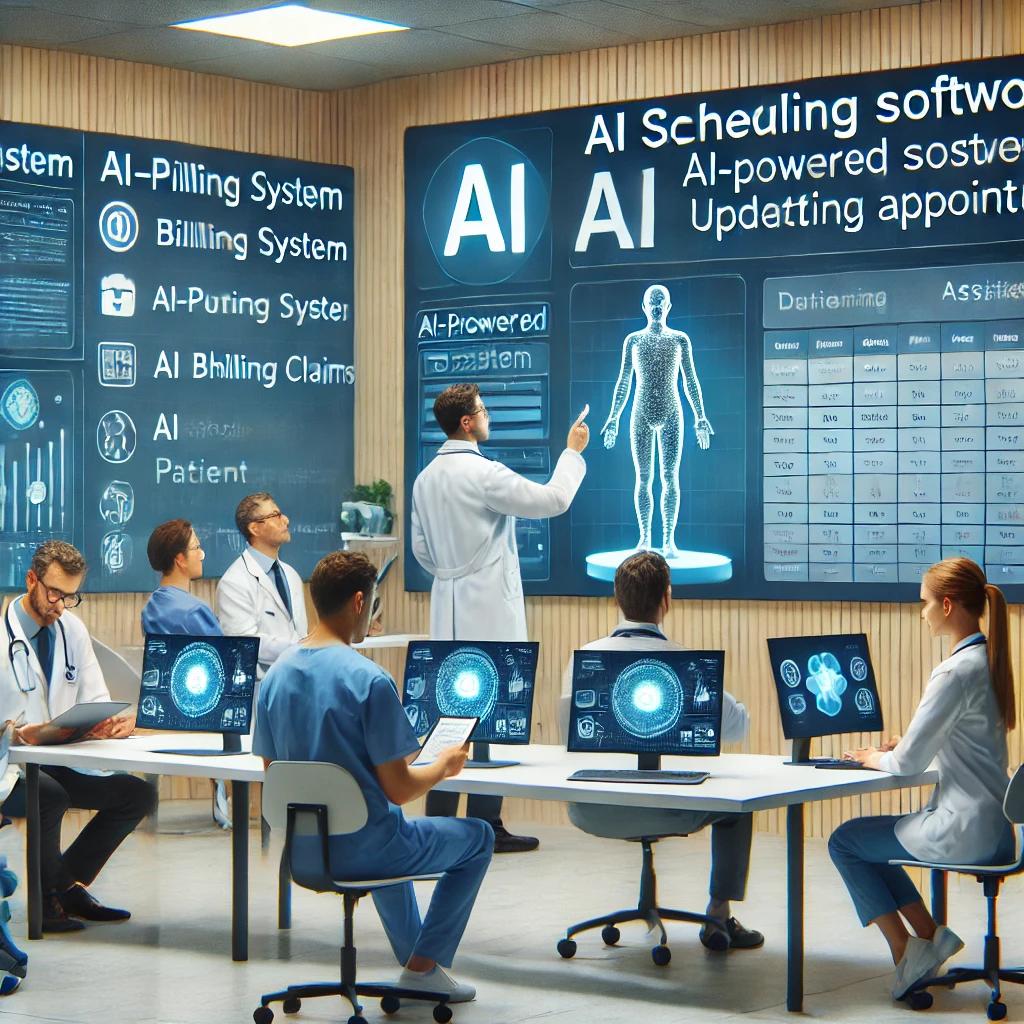
Implementing AI requires choosing the right tools, training staff, and ensuring compliance with medical regulations. AI can enhance workflow efficiency, but doctors must receive proper training to integrate AI solutions seamlessly into their practice.
Chapter 5: Implementing AI in Your Practice
5.1 Choosing the Right AI Tools
Not all AI tools fit every medical
practice. Selecting the right AI depends on practice size, specialty,
and budget.
✅ Key Considerations:
What problem does AI
solve? (Admin, diagnostics, or patient engagement?)
Does it integrate
with your EHR system?
Is it compliant with HIPAA/GDPR?
✅ Example:
Small practices: AI for billing automation and scheduling.
Larger
clinics: AI for diagnostics, imaging, and clinical decision-making.
✅
Impact on Doctor's Offices:
Saves money by automating
time-consuming tasks.
Improves patient care with personalized
treatment plans.
5.2 Training Staff and Doctors on AI Integration
AI is only effective if medical staff and physicians understand how to
use it.
✅ Best Practices for AI Training:
Conduct
workshops on AI tools for staff.
Use step-by-step onboarding for
AI-powered EHRs.
Provide AI ethics training to maintain human
oversight.
✅ Case Study: AI Adoption Training
Cleveland
Clinic's AI training program helped staff adapt to AI scheduling tools,
reducing appointment errors by 40%.
5.3 Compliance and Legal
Considerations
AI in healthcare must comply with data protection laws
and ethical guidelines.
✅ Key Regulations:
HIPAA (U.S.) �
Protects patient data.
GDPR (Europe) � Ensures transparency in AI
decision-making.
✅ Ethical AI Use in Medicine:
AI must
complement, not replace, human judgment.
Patients should be informed
when AI is involved in their care.
✅ Case Study: Legal AI Challenges
A hospital faced legal scrutiny when an AI misdiagnosed a patient
due to biased training data.
Chapter 6: The Future of AI in Medical
Offices
6.1 What's Next for AI in Healthcare?
AI is rapidly
evolving, bringing new capabilities in diagnosis, robotic surgery, and
patient monitoring.
✅ Emerging Trends:
AI-driven robotics
for surgery.
Predictive AI models for early disease detection.
✅
Example: AI in Robotic Surgery (Da Vinci System)
The Da Vinci
robotic surgery system, assisted by AI, reduces surgical errors by 40%.